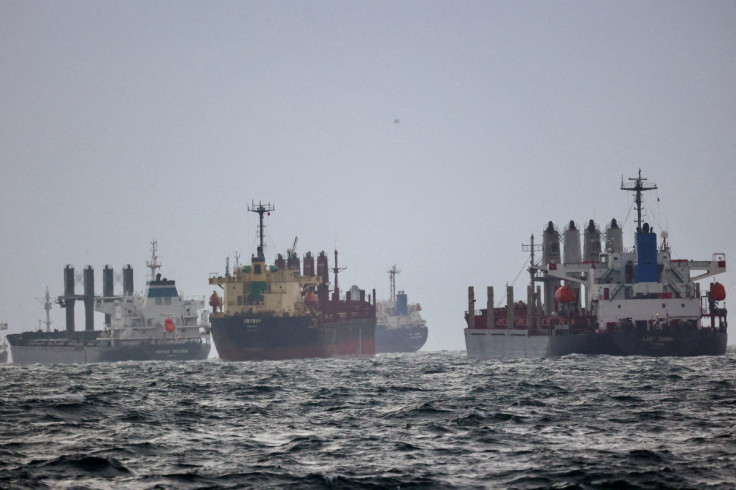Black Sea Grain Deal Uncertainties Stall Ukraine Shipments

Dozens of ships are unable to reach Ukraine, days after a Black Sea grain deal was extended and the pace of shipments is unlikely to pick up because of slow inspections and other uncertainties, according to data and three sources.
The United Nations-backed deal, which allows the safe passage of grains through three Ukrainian ports, was extended on May 17 for two months - a shorter time than expected.
Nearly 40 dry bulk vessels were stationary around Istanbul in areas that have been used for inspections by a joint inspection team representing Russia, Ukraine and Turkey as well as the UN, analysis from global trade analytics platform Kpler showed.
Around three quarters of those ships have previously made calls through the corridor, Kpler added.
"It is likely that there are further vessels waiting outside of these zones or currently en route to the inspection areas," Alexis Ellender, Kpler lead major dry bulks analyst, said.
"Pivdennyi has accounted for 35% of shipments through the corridor and, until it restarts loadings, trade will struggle to return to previous levels."
Earlier this week Ukraine accused Russia of effectively cutting its port of Pivdennyi out of the grain deal. Russia has not responded to the comments from Kyiv.
Ukraine said last week that 62 ships were waiting for inspection.
"I expect to see Russia continue to slow-walk inspections. It currently only allows a limited number of ships to move to two of the three approved ports," Arlan Suderman, chief commodities economist with financial services group StoneX.
Inspections are required for every ship before it can enter one of the three ports covered by the deal, which also include Odesa and Chornomorsk.
The duration of an average voyage was estimated at just over 28 days, according to space-based data analytics provider Spire.
The number of cargo orders - global requests for available ships to transport grains from Ukraine - reached 376 in May versus 370 orders for April, according to separate analysis from maritime and commodities data platform Shipfix.
Shipfix data showed that the shipment size had dropped from around 15,000 tonnes in April to just over 10,000 in May as the uncertain situation led traders to be cautious in bookings.
Forward cargo orders for June onwards were seen at 50 at present, Shipfix said.
© Copyright Thomson Reuters 2024. All rights reserved.





















